Viernes 02/06/10 Situacion del empleo
Re: Viernes 02/06/10 Situacion del empleo
A Chile ni lo menciono por que no es potencia, recien estan en paniales.
- admin
- Site Admin
- Mensajes: 165505
- Registrado: Mié Abr 21, 2010 9:02 pm
Re: Viernes 02/06/10 Situacion del empleo
Un jugador de futbol no se hace, se nace. Eso de practicar y demas solo es para pulirlo pero si no ha nacido para brillar ni todos los conocimientos o entrenamientos lo va a hacer un un Maradona o Pelé.
Con respecto a lo de los negros, me parece que fue un comentario racista (jajajaja). Bueno, pero si nos vamos a sus antepasados que fueron esclavizados y que en el Africa solo corren porque no hay combi entre cada pueblo entonces llegamos a que es algo genético.
Gollllllllll de España !!!
Con respecto a lo de los negros, me parece que fue un comentario racista (jajajaja). Bueno, pero si nos vamos a sus antepasados que fueron esclavizados y que en el Africa solo corren porque no hay combi entre cada pueblo entonces llegamos a que es algo genético.
Gollllllllll de España !!!
- Victor VE
- Mensajes: 2987
- Registrado: Jue Abr 22, 2010 8:33 am
Re: Viernes 02/06/10 Situacion del empleo
Warren Buffet dona 2.000 millones de dólares a obras de caridad
El millonario estadounidense Warren Buffet, que prometió verter más del 99% de su fortuna en obras caritativas, donó 1.930 millones de dólares en acciones a cinco organizaciones caritativas según documentos financieros.
Según documentos del regulador bursátil de la Bolsa (SEC), Buffet donó 1.600 millones de dólares a la Fundación Bill y Melinda Gates.
Otros ejemplos
El millonario a la cabeza del grupo financiero Berkshire Hathaway había prometido en 2006 donar cada mes de julio una partida de 10.000 millones de acciones de su empresa a la fundación Bill Gates.
Este año ya van 20.400 millones de dólares en acciones que dona a esta fundación.
Warren Buffet informó también a la SEC que donaría 713.000 acciones a las fundaciones Sherwood, Howard G. Buffet y NoVo, y más de dos millones de acciones a la fundación Thompson Buffet.
Los dos estadounidenses más ricos, Bill Gates y Warren Buffet, habían anunciado a mediados de junio que procurarían persuadir a sus pares millonarios de donar la mitad de su fortuna a obras de caridad.
Buffet, de 79 años, posee una fortuna estimada en 47.000 millones de dólares y prometió deshacerse del 99% de su capital para donarlo a obras filantrópicas en vida o después de muerto".
El millonario estadounidense Warren Buffet, que prometió verter más del 99% de su fortuna en obras caritativas, donó 1.930 millones de dólares en acciones a cinco organizaciones caritativas según documentos financieros.
Según documentos del regulador bursátil de la Bolsa (SEC), Buffet donó 1.600 millones de dólares a la Fundación Bill y Melinda Gates.
Otros ejemplos
El millonario a la cabeza del grupo financiero Berkshire Hathaway había prometido en 2006 donar cada mes de julio una partida de 10.000 millones de acciones de su empresa a la fundación Bill Gates.
Este año ya van 20.400 millones de dólares en acciones que dona a esta fundación.
Warren Buffet informó también a la SEC que donaría 713.000 acciones a las fundaciones Sherwood, Howard G. Buffet y NoVo, y más de dos millones de acciones a la fundación Thompson Buffet.
Los dos estadounidenses más ricos, Bill Gates y Warren Buffet, habían anunciado a mediados de junio que procurarían persuadir a sus pares millonarios de donar la mitad de su fortuna a obras de caridad.
Buffet, de 79 años, posee una fortuna estimada en 47.000 millones de dólares y prometió deshacerse del 99% de su capital para donarlo a obras filantrópicas en vida o después de muerto".
- Victor VE
- Mensajes: 2987
- Registrado: Jue Abr 22, 2010 8:33 am
Re: Viernes 02/06/10 Situacion del empleo
Aguila esta muy bien tu comentario sobre futbol, solo agregaría que el promedio de edad de esta selección argentina debe ser de 28 o 29 años, no son tan viejos tampoco y en la selección alemana tampoco todos son jóvenes, el promedio de edad debe ser de 25.
Alemania es un equipo que juega fútbol, hay habilidad, velocidad y efectividad se nota el trabajo del entrenador, en Argentina solo era individualidades y no tenían entrenador
Alemania es un equipo que juega fútbol, hay habilidad, velocidad y efectividad se nota el trabajo del entrenador, en Argentina solo era individualidades y no tenían entrenador
"No está derrotado quien no triunfa, sino quien no lucha."
- El_Diez
- Mensajes: 2791
- Registrado: Jue Abr 22, 2010 9:27 am
Re: Viernes 02/06/10 Situacion del empleo
Victor como siempre hasta las patas, se trata de equipos que ganan mundiales, acaso en todos los mundiales han habido jugadores como Pele? Por supuesto que no. Es el equipo el que cuenta.
- admin
- Site Admin
- Mensajes: 165505
- Registrado: Mié Abr 21, 2010 9:02 pm
Re: Viernes 02/06/10 Situacion del empleo
Si alguien me hubiera dicho al empezar el mundial que Uruguay y no Brasil iba a estar en las semifinales, no le hubiera creido.
- admin
- Site Admin
- Mensajes: 165505
- Registrado: Mié Abr 21, 2010 9:02 pm
Re: Viernes 02/06/10 Situacion del empleo
Y dejense de estar diciendo que los negros son brutos por que no es cierto, dadas las condiciones sociales, economicas, psicologicas y morales los negros son tan inteligentes, motivados y talentosos como cualquier otra raza, hay ejemplos innumerables en todo el mundo. Piensen en Obama,Condi Rice, C. Powell, Thomas de la corte suprema, Tiger Woods, Oprah, Michael Jordan, Michael Jackon, todos los jugadores de basquetball en US asi como los de football Americano, etc, etc.
La pobreza y las condiciones infrahumanas embrutecen a cualquiera no solo a los negros.
La pobreza y las condiciones infrahumanas embrutecen a cualquiera no solo a los negros.
- admin
- Site Admin
- Mensajes: 165505
- Registrado: Mié Abr 21, 2010 9:02 pm
Re: Viernes 02/06/10 Situacion del empleo
Como no vamos a estar todos agradecidos a este pais, como no vamos a quererlo.
------------------------------------------------------------------------------
El dia de la independencia en Siberia
De ser un chofer de camion para el ejercito Ruso, yo aprendi las bendiciones de ser un Americano
Josef Katz fue un preso politico en Siberia, Katz nacio en Ukraine y vivio en una pequenia ciudad hasta la Segunda Guerra Mundial. En 1944 fue puesto en un tren y enviado a un campo de concentracion separado de su familia. Se las arreglo para aguantar hasta el anio siguiente, cuando a la edad de 15 anios fue liberado por los soldados Americanos.
Siendo todavia un chico, cuando los "angeles" como el los llamaba le ofrecieron llevarlo a US, el penso solamente en encontrar a sus padres. Por eso les dijo a los soldados que no. Hambriento y sin un centavo, Katz no podia ni caminar. Como sea llego a su casa donde descubrio que era el el unico sobreviviente.
Un vecino lo reconocio y lo llevo con el. Se demoraron un anio en ponerlo saludable nuevamente, y le tomo dos anios el pagarles el favor. Cuando tuvo mayor edad como para darse cuenta lo que habia perdido al no haberse ido a US. Pero ya era demasiado tarde. El entro en el servicio militar obligatorio en las fuerzas armadas Rusas y fue enviado de regreso a Siberia.
Despues encontro un trabajo como chofer en Achinsk, y fue alli donde el vivio, trabajo y envejecio.
Cuando le pregunto si se arrepiente de la decision que tomo, las lagrimas se le salen de los ojos.
Fue el error mas grande que he cometido en mi vida, me contesta. Muchas veces mi corazon ha llorado por haber perdido esa oportunidad.
Mis ojos no estaban secos tampoco. Pero no puedo decir que solo la compasion por el me conmovio. Tambien fue gratitud.
Mi misma familia vivio en parte de Eastern Europe que despues paso al control de Union Sovietica. Y entonces, tambien sufrimos la fuerza de la tragedia y la falta de oportunidad.
La discriminacion y el mal trato a los judios en la Rusa Czarista causaron que mis abuelos que habian sido llevados ilegalmente a Rusia a la edad de 14 anios antes de que sean enlistados. Ante los programas antiJudios mi tatarabuela vendio su casa y con su esposo y sus 10 ninios llegaron a New York en 1895.
Yo, como su descendiente no habria tenido la superlativa educacion publica y como un estudiante de periodismo pude probar la libertad de expresion. No hubiera ganado mi ingreso a Cornell University y la ayuda financiera para asistir a una de las mejores universidades del pais, eso abrio la puerta para elegir la carrera de mi gusto. Yo no hubiera podido practicar libremente mi religion Judia, el recitar el Passover en voz alta y publicamente en el festival de libertad que nosotros rezamos, libertad para todos.
En el dia de la independencia, estoy puntualmente alerta y consciente de las remarcables bendiciones que he recibido por los riesgos y decisiones que mis antepasados tomaron, riesgos que ellos tomaron porque la conviccion de que America los recibiria bien. Porque ellos pudieron gozar de las oportunidades en este pais en lugar de dejarlas pasar.
Ms. Krieger es la jefa de la oficina del Jerusalem Post.
Independence Day in Siberia
From a former Soviet Army truck driver, I learned the blessings of being an American.
By HILARY KRIEGER
My "there but for the grace of God" moment came on March 30, 2005. On that day, I found myself in the musty, bare apartment of 75-year-old Josef Katz, a former Soviet army truck driver who lived in the industrial wasteland of Achinsk, Siberia.
I had come to learn about the Jewish aid organization that provided him basic necessities each week, but what touched me most wasn't his present poverty. It was the story he told me about his past, of the steps that carried him to a cramped and crumbling apartment with a vista limited to the concrete courtyard separating his warehouse of a building from the others just like it—and how it could have been my own family's.
Like the many political prisoners who made Siberia synonymous with exile, Katz was born elsewhere. In his case, it was Ukraine, where he lived in a small town until World War II. Then, in 1944, he was packed onto a train, sent to a concentration camp and separated from his family. He managed to hang on until the next year when, at the age of 15, he was liberated by American soldiers.
Being just a boy, when the GIs—"angels" he called them—offered to take him to the United States, he thought only of finding his parents. So he turned down the soldiers' offer. Half-starved and penniless, Katz could barely walk. Yet he made it back home, where he discovered that he alone from his family had survived.
There was a neighbor who recognized him and took him in. She spent a year nursing him back to health, and he in turn spent two years after that working to repay her. By then he was old enough to realize what he had lost by not going to America. But it was too late. He entered his mandatory military service in the Soviet army and was sent to a base in Siberia.
After his release Katz found work as a driver in Achinsk, where the grayness of the buildings, streets and perpetual slush penetrates the bones more deeply than the chill. It was in Achinsk that he, as he put it, "lived, worked and grew old."
Katz's decision was long made by the time I met him in his apartment five years ago. But that didn't mean the wound of a life that might have been wasn't fresh. When I asked him whether he regretted his choice, tears welled up.
"It was the biggest mistake I ever made," he answered. "Many times I was crying in my heart that I missed that chance."
My eyes weren't dry, either. But I can't claim it was solely compassion that moved me. It was also deep gratitude.
My own family lived in parts of Eastern Europe that later came under Soviet control. And they, too, were buffeted by historic forces of tragedy and opportunity.
The discrimination and hardship visited on Jews in the Czarist army caused my great-grandfather's parents to have him smuggled out of Russia at the age of 14 before he could be conscripted. Against a backdrop of anti-Jewish pogroms, the prospect of building a better life convinced my great-great-grandmother to sell her home so that she, her husband and their 10 children could join the huddled masses reaching the New York shore in 1895.
Had they wavered, they and their offspring would also have grown up to face the ravages of World War II and—had any survived—a life of stifled hopes under Soviet Communism.
As their descendant, I would not have had the superlative public education where even as a student journalist I was able to test the bounds of free speech. I would not have gained the entrée and financial aid at Cornell, one of the country's finest universities, that opened the door to the career of my choice. I would not have been able to worship freely as a Jew, to recite the Passover declaration loudly and publicly that "on this festival of freedom we pray that liberty will come to all."
On Independence Day, I am acutely aware of the remarkable gifts I have been given because of decisions my forebears made, risks they took because of their conviction that America would receive and favor them. Because they were able to seize opportunity rather than let it slip away.
In a godforsaken apartment in Achinsk, I understood the blessings of being an American.
Ms. Krieger is the Washington bureau chief of the Jerusalem Post.
------------------------------------------------------------------------------
El dia de la independencia en Siberia
De ser un chofer de camion para el ejercito Ruso, yo aprendi las bendiciones de ser un Americano
Josef Katz fue un preso politico en Siberia, Katz nacio en Ukraine y vivio en una pequenia ciudad hasta la Segunda Guerra Mundial. En 1944 fue puesto en un tren y enviado a un campo de concentracion separado de su familia. Se las arreglo para aguantar hasta el anio siguiente, cuando a la edad de 15 anios fue liberado por los soldados Americanos.
Siendo todavia un chico, cuando los "angeles" como el los llamaba le ofrecieron llevarlo a US, el penso solamente en encontrar a sus padres. Por eso les dijo a los soldados que no. Hambriento y sin un centavo, Katz no podia ni caminar. Como sea llego a su casa donde descubrio que era el el unico sobreviviente.
Un vecino lo reconocio y lo llevo con el. Se demoraron un anio en ponerlo saludable nuevamente, y le tomo dos anios el pagarles el favor. Cuando tuvo mayor edad como para darse cuenta lo que habia perdido al no haberse ido a US. Pero ya era demasiado tarde. El entro en el servicio militar obligatorio en las fuerzas armadas Rusas y fue enviado de regreso a Siberia.
Despues encontro un trabajo como chofer en Achinsk, y fue alli donde el vivio, trabajo y envejecio.
Cuando le pregunto si se arrepiente de la decision que tomo, las lagrimas se le salen de los ojos.
Fue el error mas grande que he cometido en mi vida, me contesta. Muchas veces mi corazon ha llorado por haber perdido esa oportunidad.
Mis ojos no estaban secos tampoco. Pero no puedo decir que solo la compasion por el me conmovio. Tambien fue gratitud.
Mi misma familia vivio en parte de Eastern Europe que despues paso al control de Union Sovietica. Y entonces, tambien sufrimos la fuerza de la tragedia y la falta de oportunidad.
La discriminacion y el mal trato a los judios en la Rusa Czarista causaron que mis abuelos que habian sido llevados ilegalmente a Rusia a la edad de 14 anios antes de que sean enlistados. Ante los programas antiJudios mi tatarabuela vendio su casa y con su esposo y sus 10 ninios llegaron a New York en 1895.
Yo, como su descendiente no habria tenido la superlativa educacion publica y como un estudiante de periodismo pude probar la libertad de expresion. No hubiera ganado mi ingreso a Cornell University y la ayuda financiera para asistir a una de las mejores universidades del pais, eso abrio la puerta para elegir la carrera de mi gusto. Yo no hubiera podido practicar libremente mi religion Judia, el recitar el Passover en voz alta y publicamente en el festival de libertad que nosotros rezamos, libertad para todos.
En el dia de la independencia, estoy puntualmente alerta y consciente de las remarcables bendiciones que he recibido por los riesgos y decisiones que mis antepasados tomaron, riesgos que ellos tomaron porque la conviccion de que America los recibiria bien. Porque ellos pudieron gozar de las oportunidades en este pais en lugar de dejarlas pasar.
Ms. Krieger es la jefa de la oficina del Jerusalem Post.
Independence Day in Siberia
From a former Soviet Army truck driver, I learned the blessings of being an American.
By HILARY KRIEGER
My "there but for the grace of God" moment came on March 30, 2005. On that day, I found myself in the musty, bare apartment of 75-year-old Josef Katz, a former Soviet army truck driver who lived in the industrial wasteland of Achinsk, Siberia.
I had come to learn about the Jewish aid organization that provided him basic necessities each week, but what touched me most wasn't his present poverty. It was the story he told me about his past, of the steps that carried him to a cramped and crumbling apartment with a vista limited to the concrete courtyard separating his warehouse of a building from the others just like it—and how it could have been my own family's.
Like the many political prisoners who made Siberia synonymous with exile, Katz was born elsewhere. In his case, it was Ukraine, where he lived in a small town until World War II. Then, in 1944, he was packed onto a train, sent to a concentration camp and separated from his family. He managed to hang on until the next year when, at the age of 15, he was liberated by American soldiers.
Being just a boy, when the GIs—"angels" he called them—offered to take him to the United States, he thought only of finding his parents. So he turned down the soldiers' offer. Half-starved and penniless, Katz could barely walk. Yet he made it back home, where he discovered that he alone from his family had survived.
There was a neighbor who recognized him and took him in. She spent a year nursing him back to health, and he in turn spent two years after that working to repay her. By then he was old enough to realize what he had lost by not going to America. But it was too late. He entered his mandatory military service in the Soviet army and was sent to a base in Siberia.
After his release Katz found work as a driver in Achinsk, where the grayness of the buildings, streets and perpetual slush penetrates the bones more deeply than the chill. It was in Achinsk that he, as he put it, "lived, worked and grew old."
Katz's decision was long made by the time I met him in his apartment five years ago. But that didn't mean the wound of a life that might have been wasn't fresh. When I asked him whether he regretted his choice, tears welled up.
"It was the biggest mistake I ever made," he answered. "Many times I was crying in my heart that I missed that chance."
My eyes weren't dry, either. But I can't claim it was solely compassion that moved me. It was also deep gratitude.
My own family lived in parts of Eastern Europe that later came under Soviet control. And they, too, were buffeted by historic forces of tragedy and opportunity.
The discrimination and hardship visited on Jews in the Czarist army caused my great-grandfather's parents to have him smuggled out of Russia at the age of 14 before he could be conscripted. Against a backdrop of anti-Jewish pogroms, the prospect of building a better life convinced my great-great-grandmother to sell her home so that she, her husband and their 10 children could join the huddled masses reaching the New York shore in 1895.
Had they wavered, they and their offspring would also have grown up to face the ravages of World War II and—had any survived—a life of stifled hopes under Soviet Communism.
As their descendant, I would not have had the superlative public education where even as a student journalist I was able to test the bounds of free speech. I would not have gained the entrée and financial aid at Cornell, one of the country's finest universities, that opened the door to the career of my choice. I would not have been able to worship freely as a Jew, to recite the Passover declaration loudly and publicly that "on this festival of freedom we pray that liberty will come to all."
On Independence Day, I am acutely aware of the remarkable gifts I have been given because of decisions my forebears made, risks they took because of their conviction that America would receive and favor them. Because they were able to seize opportunity rather than let it slip away.
In a godforsaken apartment in Achinsk, I understood the blessings of being an American.
Ms. Krieger is the Washington bureau chief of the Jerusalem Post.
- admin
- Site Admin
- Mensajes: 165505
- Registrado: Mié Abr 21, 2010 9:02 pm
Re: Viernes 02/06/10 Situacion del empleo
Yo se que a muchos no les gusta Serena y Venus Williams por que son negras, pero en el tennis femenino ellas son las que dominan.
--------------------------------------------------------------------------------------
Serena Williams gana su Grand Slam numero 13, uno mas que Billie Jean King.
Los veranos solian ser dificiles para Serena, su padre la hacia practicar a ella y a su hermanas dos veces al dia en las canchas de tennis publicas en los suburbios de California.
Serena le senialo el numero 13 a su papa con sus dedos desde la cancha.
Yo odiaba los veranos, dice Serena, nosotros siempre ibamos al parque a practicar de 8 a.m. a 11 a.m. y despues ibamos a almorzar y regresabamos para practicar mas. Era muy dificl. Pero cuando una es pequenia no piensa en eso. Mi papa solia ir a la tienda y nos compraba alguna bebida para deportistas. Son todas esos recuerdos, y el trabajo tan duro que uno hace que uno nunca olvida y eventualmente se ven los resultados.
Por lo menos una de las dos hermanas Williams ha estado en 10 de las 11 ultimas finales de Wimbledon.
En esos anios solo Sharapova y A. Mauresmo han interrumpido el dominio de las Williams en Wimbledon.
Serena produjo 89 aces (servicios sin retorno por parte del contrincante) en su camino al campeonato.
Serena Williams Wins at Wimbledon, Tops King With 13th Grand Slam Title
By Danielle Rossingh - Jul 3, 2010
Summers used to be difficult for Serena Williams, whose dad made her and elder sister Venus practice twice daily on the public tennis courts of the Los Angeles suburb of Compton.
Williams raised 13 fingers yesterday to her father, Richard, on the Centre Court of Wimbledon after beating Russia’s Vera Zvonareva 6-3, 6-2 for her fourth trophy on the London grass courts. Her 13th Grand Slam singles title moved her one ahead of mentor Billie Jean King, who applauded the American from the Royal Box.
“I hated the summers, because I think we had two practices a day,” Williams said after the match in an interview with a small group of reporters.
“We would always go in the morning, from 8 a.m. to 11 a.m., and then we would have lunch at the park and then right after lunch we’d go back to practice. It was tough. But when you’re that young, you don’t really think about it. At the time, my dad would go sometimes next door to the liquor store to buy us the latest sports drink. It’s all those memories and all that hard work that you just never forget. And, eventually, it pays off.”
At least one of the sisters has appeared in 10 of the last 11 Wimbledon finals.
Serena also won in 2002, 2003 and 2009. Venus won her fifth title in 2008, beating her younger sister. In the past decade, only Russia’s Maria Sharapova in 2004 and Amelie Mauresmo of France in 2006 have broken the Williams’s domination.
Nadal-Berdych Final
Top-ranked Rafael Nadal of Spain will be seeking his second Wimbledon title today in the men’s final against No. 12 Tomas Berdych of the Czech Republic. Nadal has a 13-match winning streak at Wimbledon.
Williams said she dedicated her fourth championship to her serve. The No. 1-ranked player on the WTA Tour produced a new Wimbledon women’s record of 89 aces on her way to the title. She faced no break points against Zvonareva in the final.
“The French Open is why my serve is so good, because I thought I served so bad in my quarterfinal match,” Williams said.
After she blew a match point and lost to eventual Roland Garros finalist Samantha Stosur of Australia in three sets, Williams flew home right away.
“I usually take a day off,” Williams said. “But I went straight home, and said I’m going to have to work on my serve because if I serve like this again, I don’t know how much longer I’m going to be out here.”
Williams Sixth
Williams now ranks sixth on the career list of major winners. She is five Grand Slam titles behind Chris Evert and Martina Navratilova. Margaret Smith Court holds the record at 24, followed by Steffi Graf with 22 and Helen Wills Moody with 19.
Navratilova, a nine-time Wimbledon champion, told the British Broadcasting Corp. yesterday that Williams, 28, is “just head and shoulders above anyone else,” and that she might catch Graf.
Williams doesn’t want to set such targets for herself.
“I’m still in my career, and I never look outside of it while I’m in it because I don’t want to be like, ‘Oh wow, I’ve done that, and I’ve done that,’” she said. “Because then I can become happy and satisfied, and I will probably lose my desire. I just really try to live in the moment and live for the day, and not think too much.”
Williams said she celebrated by dancing around the clubhouse holding the champion’s Venus Rosewater dish, with Frank Sinatra singing “Fly Me to the Moon” in her head.
‘My Lucky Number’
“Billie Jean, I got you,” she told her mentor during the prize ceremony after ending the 67-minute match with a smash. “This is No. 13 for me now. It’s actually my lucky number.”
Williams, who also triumphed at the Australian Open in late January, spoke to King after yesterday’s victory.
“She just said good job, and she said she was proud of me, and to keep going,” Williams said. “Go out there and win some more.”
--------------------------------------------------------------------------------------
Serena Williams gana su Grand Slam numero 13, uno mas que Billie Jean King.
Los veranos solian ser dificiles para Serena, su padre la hacia practicar a ella y a su hermanas dos veces al dia en las canchas de tennis publicas en los suburbios de California.
Serena le senialo el numero 13 a su papa con sus dedos desde la cancha.
Yo odiaba los veranos, dice Serena, nosotros siempre ibamos al parque a practicar de 8 a.m. a 11 a.m. y despues ibamos a almorzar y regresabamos para practicar mas. Era muy dificl. Pero cuando una es pequenia no piensa en eso. Mi papa solia ir a la tienda y nos compraba alguna bebida para deportistas. Son todas esos recuerdos, y el trabajo tan duro que uno hace que uno nunca olvida y eventualmente se ven los resultados.
Por lo menos una de las dos hermanas Williams ha estado en 10 de las 11 ultimas finales de Wimbledon.
En esos anios solo Sharapova y A. Mauresmo han interrumpido el dominio de las Williams en Wimbledon.
Serena produjo 89 aces (servicios sin retorno por parte del contrincante) en su camino al campeonato.
Serena Williams Wins at Wimbledon, Tops King With 13th Grand Slam Title
By Danielle Rossingh - Jul 3, 2010
Summers used to be difficult for Serena Williams, whose dad made her and elder sister Venus practice twice daily on the public tennis courts of the Los Angeles suburb of Compton.
Williams raised 13 fingers yesterday to her father, Richard, on the Centre Court of Wimbledon after beating Russia’s Vera Zvonareva 6-3, 6-2 for her fourth trophy on the London grass courts. Her 13th Grand Slam singles title moved her one ahead of mentor Billie Jean King, who applauded the American from the Royal Box.
“I hated the summers, because I think we had two practices a day,” Williams said after the match in an interview with a small group of reporters.
“We would always go in the morning, from 8 a.m. to 11 a.m., and then we would have lunch at the park and then right after lunch we’d go back to practice. It was tough. But when you’re that young, you don’t really think about it. At the time, my dad would go sometimes next door to the liquor store to buy us the latest sports drink. It’s all those memories and all that hard work that you just never forget. And, eventually, it pays off.”
At least one of the sisters has appeared in 10 of the last 11 Wimbledon finals.
Serena also won in 2002, 2003 and 2009. Venus won her fifth title in 2008, beating her younger sister. In the past decade, only Russia’s Maria Sharapova in 2004 and Amelie Mauresmo of France in 2006 have broken the Williams’s domination.
Nadal-Berdych Final
Top-ranked Rafael Nadal of Spain will be seeking his second Wimbledon title today in the men’s final against No. 12 Tomas Berdych of the Czech Republic. Nadal has a 13-match winning streak at Wimbledon.
Williams said she dedicated her fourth championship to her serve. The No. 1-ranked player on the WTA Tour produced a new Wimbledon women’s record of 89 aces on her way to the title. She faced no break points against Zvonareva in the final.
“The French Open is why my serve is so good, because I thought I served so bad in my quarterfinal match,” Williams said.
After she blew a match point and lost to eventual Roland Garros finalist Samantha Stosur of Australia in three sets, Williams flew home right away.
“I usually take a day off,” Williams said. “But I went straight home, and said I’m going to have to work on my serve because if I serve like this again, I don’t know how much longer I’m going to be out here.”
Williams Sixth
Williams now ranks sixth on the career list of major winners. She is five Grand Slam titles behind Chris Evert and Martina Navratilova. Margaret Smith Court holds the record at 24, followed by Steffi Graf with 22 and Helen Wills Moody with 19.
Navratilova, a nine-time Wimbledon champion, told the British Broadcasting Corp. yesterday that Williams, 28, is “just head and shoulders above anyone else,” and that she might catch Graf.
Williams doesn’t want to set such targets for herself.
“I’m still in my career, and I never look outside of it while I’m in it because I don’t want to be like, ‘Oh wow, I’ve done that, and I’ve done that,’” she said. “Because then I can become happy and satisfied, and I will probably lose my desire. I just really try to live in the moment and live for the day, and not think too much.”
Williams said she celebrated by dancing around the clubhouse holding the champion’s Venus Rosewater dish, with Frank Sinatra singing “Fly Me to the Moon” in her head.
‘My Lucky Number’
“Billie Jean, I got you,” she told her mentor during the prize ceremony after ending the 67-minute match with a smash. “This is No. 13 for me now. It’s actually my lucky number.”
Williams, who also triumphed at the Australian Open in late January, spoke to King after yesterday’s victory.
“She just said good job, and she said she was proud of me, and to keep going,” Williams said. “Go out there and win some more.”
- admin
- Site Admin
- Mensajes: 165505
- Registrado: Mié Abr 21, 2010 9:02 pm
Re: Viernes 02/06/10 Situacion del empleo
Los graficos del dia, 
.

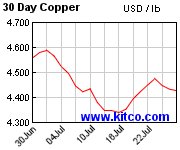
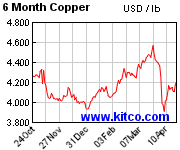
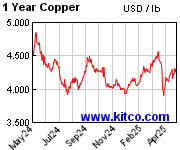
.

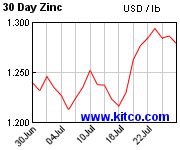
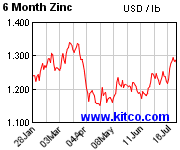
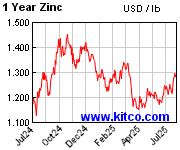
.

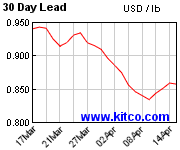
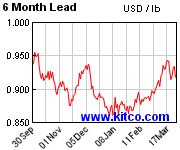
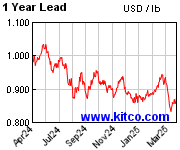
.

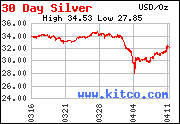
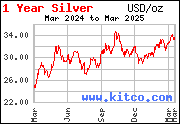
.

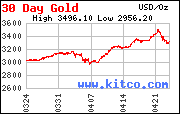
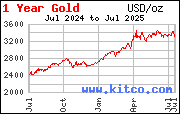
.
.




.




.




.



.



.
- Comodoro
- Mensajes: 980
- Registrado: Jue May 06, 2010 8:24 am
- Ubicación: LIMA
Re: Viernes 02/06/10 Situacion del empleo
Feliz cumpleanios America!! Happy 4 of July!
- admin
- Site Admin
- Mensajes: 165505
- Registrado: Mié Abr 21, 2010 9:02 pm
Re: Viernes 02/06/10 Situacion del empleo
Estados Unidos de América querrás decir.
América en sí engloba muchos paises.
América en sí engloba muchos paises.
- Victor VE
- Mensajes: 2987
- Registrado: Jue Abr 22, 2010 8:33 am
Re: Viernes 02/06/10 Situacion del empleo
Si ya se, aca se dice asi, se sobre entiende que es US.
- admin
- Site Admin
- Mensajes: 165505
- Registrado: Mié Abr 21, 2010 9:02 pm
Re: Viernes 02/06/10 Situacion del empleo
Aguila por lo que veo hoy no hay bolsa en US., bueno espero que pases un excelente dia de la Independencia. saludos
- eduforever
- Mensajes: 595
- Registrado: Jue Abr 22, 2010 9:50 pm
Re: Viernes 02/06/10 Situacion del empleo
Gracias Edu, si la estoy pasando recontra divino, muchas gracias.
- admin
- Site Admin
- Mensajes: 165505
- Registrado: Mié Abr 21, 2010 9:02 pm
¿Quién está conectado?
Usuarios navegando por este Foro: No hay usuarios registrados visitando el Foro y 34 invitados
